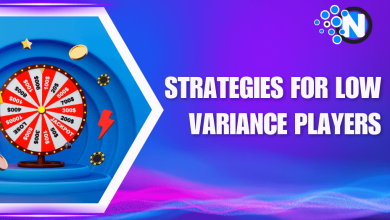Impact of AI and Machine Learning in the Online Gaming Industry

Artificial Intelligence (AI) and Machine Learning (ML) are transforming the gaming industry, especially online gaming. Today, Artificial Intelligence (AI) and Machine Learning (ML) aren’t just buzzwords — they’re the engines driving the next generation of online gaming.
From smarter opponents to adaptive game environments and personalized player experiences, AI and ML are transforming how we play, build, and experience games.
Whether you want to bet on the match of Ryan Garcia or simply want to play a multiplayer game with your friend, AI can deliver a personalized experience based on your interests.
What is Artificial Intelligence (AI)?
Start creating Verdict in seconds, and convert more of your visitors into leads.
Artificial Intelligence AI refers to the simulation of human intelligence by machines. In gaming, AI is used to create intelligent behaviors, enabling games to respond to players dynamically rather than following fixed scripts.
Key Characteristics:
- Problem-solving ability
- Learning from user actions
- Decision-making
- Pattern recognition
Example:
In strategy games like Civilization, AI determines how enemy civilizations interact with the player, changing their behavior based on past moves.
What is Machine Learning (ML)?
Start creating Verdict in seconds, and convert more of your visitors into leads.
Machine Learning is a branch of AI that enables computers to learn from data without being explicitly programmed. In gaming, ML helps systems understand player preferences, detect cheating, and recommend in-game content. ML can also help you find betting sites not on GamStop.
Machine Learning Process in Gaming:
| Step | Description |
|---|---|
| Data Collection | Tracks player behavior and in-game interactions |
| Model Training | Algorithms analyze the data to recognize patterns |
| Real-Time Adaptation | Game adjusts difficulty, suggestions, or environment |
Example:
In mobile games, ML can identify a player’s skill level and adjust enemy strength accordingly to keep the game engaging.
Types of AI Used in Gaming
Start creating Verdict in seconds, and convert more of your visitors into leads.
AI in gaming isn’t one-size-fits-all. Different AI models serve different roles depending on the game type and platform.
Major Types:
- Reactive AI: Basic NPC behavior based on preset rules.
- Limited Memory AI: Adapts based on the player’s recent actions.
- Machine Learning AI: Continuously evolves gameplay using data.
- Fuzzy Logic AI: Allows NPCs to make more human-like decisions.
Use Cases:
- Racing Games: Dynamic opponent speeds (Reactive AI)
- Strategy Games: Learning your tactics over time (ML AI)
- RPGs: Quest choices affecting story outcome (Fuzzy Logic AI)
Benefits of AI and ML in Gaming
Start creating Verdict in seconds, and convert more of your visitors into leads.
AI and ML make online games more fun and exciting by creating smart, adaptive characters. They help games adjust to each player’s style, making the experience more personal. These technologies also speed up game development and improve fairness and accessibility.
Here are some of its benefits:

1 – Smarter Non-Player Characters (NPCs)
Traditionally, NPCs in games followed fixed patterns, making their behavior predictable. With AI and ML, NPCs can now learn and adapt based on player actions.
For instance, in sports games, if a player consistently uses a particular strategy, AI can adjust the NPC’s behavior to counter it, providing a more challenging experience.
2 – Streamlined Game Development
AI tools are assisting developers by automating repetitive tasks such as creating game assets, designing levels, and testing gameplay. This not only speeds up the development process but also allows for more creativity and innovation.
For example, generative AI can produce diverse game environments based on simple prompts, reducing the time and effort required from developers.
3 – Personalized Gaming Experiences
AI analyzes player behavior to tailor the gaming experience. By monitoring how a player interacts with the game, AI can adjust difficulty levels, suggest new challenges, or modify storylines to match the player’s preferences. This personalization keeps players engaged and enhances their overall experience.
4 – Enhanced NPC Interactions
Generative AI enables NPCs to have more natural and dynamic conversations with players.
Instead of scripted dialogues, NPCs can now respond in real-time, making interactions feel more authentic. This advancement allows for deeper storytelling and a more immersive gaming environment.
5 – Procedural Content Generation
AI and ML can automatically generate game content such as levels, maps, and missions. This procedural generation ensures that each playthrough offers a unique experience, increasing replayability and keeping the game fresh for players.
6 – Player Performance Analytics
AI-powered analytics tools help players improve by providing insights into their gameplay. These tools analyze performance metrics and offer suggestions for improvement, which is particularly beneficial in competitive gaming scenarios.
7 – Inclusivity and Accessibility
AI is making games more accessible to a broader audience. For example, AI-driven audio cues and adaptive controls are enabling visually impaired players to enjoy games that were previously inaccessible to them.
Scope of AI and ML in Game Development
Start creating Verdict in seconds, and convert more of your visitors into leads.
The scope of AI and ML in the gaming industry is continuously expanding as more game studios adopt data-driven design.
Currently, these technologies are used for building game analytics dashboards to gather player feedback, powering in-game voice assistants to help players, and detecting bugs or optimizing performance using machine learning.
Developing applications include AI-generated art, music, and immersive soundscapes, machine learning models that predict monetization potential and improve ad targeting, and real-time analysis of player emotions to adjust gameplay experiences on the fly.
Games like Red Dead Redemption 2 and The Last of Us Part II are already using these technologies for immersive storytelling.
Future of AI and ML in Game Development
Start creating Verdict in seconds, and convert more of your visitors into leads.
As AI tools get better, game development will also improve. In the future, AI assistants (like co-pilots) will help game designers write stories, code, and build game levels faster. We’ll also see entire games being created using generative AI. In virtual and augmented reality (VR/AR), AI will make simulations feel more real by using machine learning to respond instantly to how players act.
“The future of gaming is not about better graphics alone. It’s about smarter, more emotionally intelligent experiences powered by AI.”
Conclusion
Start creating Verdict in seconds, and convert more of your visitors into leads.
From my perspective, the rise of AI and ML in the gaming industry is like witnessing the future unfold right before our eyes. What once felt like science fiction — adaptive characters, self-learning enemies, personalized adventures — is now the reality of modern gaming. As developers continue to analyze the potential of these technologies, we can expect games to become even more immersive, intelligent, and emotionally engaging.
Whether you’re a gamer enjoying smarter storylines or a developer building smarter worlds, AI and ML are not just add-ons — they are the future.
People Also Ask
Start creating Verdict in seconds, and convert more of your visitors into leads.
Q: What are examples of AI in video games?
Games like FIFA, The Last of Us, and Dota 2 use AI for opponent logic and strategy.
Q: How does ML improve game monetization?
ML analyzes player spending behavior to optimize in-game offers.
Q: Is AI replacing game developers?
No. AI assists developers, but creative direction still requires human input.
Q: Can AI make games harder or easier?
Yes. Adaptive AI can scale difficulty in real-time based on your performance.




